WELCOME TO THE IMAGE JUNE 2025 MEETING!
Dear Delegate,
We are excited to welcome you to the Insights into MAnaging Growth for Endocrine nurses (IMAGE) June 2025 Meeting, organised by Springer Health+ IME. This event will take place on 5–6 June 2025 in the vibrant city of Lisbon in Portugal.
This year marks the 11th IMAGE meeting, and we are excited to build on the success of the past decade. The IMAGE Meeting remains committed to providing high-quality, practical clinical training for nurses involved in paediatric endocrinology practice. This year, our focus will be on integrating digital tools in paediatric endocrinology, addressing thyroid disturbances and emergencies, and understanding the late effects of cancer treatment in children.
The meeting agenda will feature plenary lectures, case studies, Q&A sessions, and a nominal group technique (NGT)-based workshop. These sessions will be followed by ample time for discussion, emphasising informality, exchange of views, and collaboration between delegates and faculty.
The IMAGE June 2025 Meeting offers a unique opportunity to share knowledge, experiences, and foster collaboration among nurses dedicated to improving patient care in our field. We are delighted to have you join us and look forward to your active participation.
We hope you enjoy this event and find it both informative and inspiring.
Warm regards,
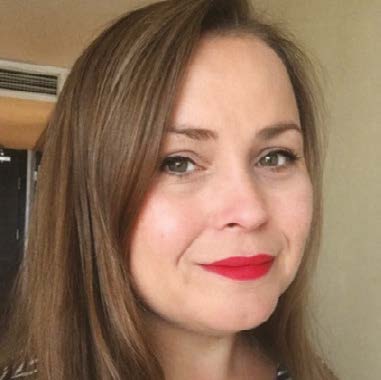
Kate Davies

Chair
EDUCATIONAL GRANT
This independent programme is made possible thanks to an educational grant received from Merck KGaA, Darmstadt, Germany.
ORGANISERS
This educational activity has been planned and independently implemented by Springer Health+ IME. Springer Health+ IME is the independent medical education group of Springer Health+, part of the Springer Nature publishing group.
Springer Health+ Independent Medical Education
Project Manager: Alexandros Marantzidis
T +44 (0) 74 4325 8019
[email protected]
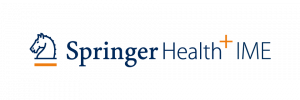
LOGISTIC PROVIDER
Med.E.A – Medical Education Academy
Phone: +39 02 8295 8658
Email: [email protected]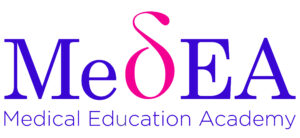
CONTINUING MEDICAL EDUCATION
This continuing education activity is accredited by the International Council of Nurses (ICN) for a maximum of 9.0 International Continuing Nursing Education Credits (ICNECs) upon completion of the event.
PROGRAMME
THURSDAY 5 JUNE
Welcome and introduction
09:00–09:10 – Kate Davies
Session 1: Digital tools in clinical practice
Moderators: Kate Davies & Paul Dimitri, UK
09:10–09:40 – How artificial intelligence (AI) and clinical skills can work together in paediatric endocrinology
Paul Dimitri, UK
09:40–10:00 – Digital monitoring of adrenal disorders
Kate Davies
10:00–10:20 – What AI cannot do…yet!
Paul Dimitri
10:20–10:40 – Case study: Digital innovation in clinical practice
Camilla Ernstsson, Sweden
10:40–10:50 – Session 1 Q&A
Kate Davies
Paul Dimitri
Camilla Ernstsson
10:50–11:10 – MORNING COFFEE BREAK
Session 2: Thyroid disturbances
Moderators: Catherine Peters & Paul Dimitri
11:10–11:35 – Diagnosis and management of congenital hypothyroidism
Catherine Peters
11:35–12:00 – Acquired thyroid dysfunction in childhood
Paul Dimitri
12:00–12:30 – 2x Case studies on thyroid dysfunction
Lisa Shepherd, UK
Judith van Eck, The Netherlands
12:30–12:40 – Session 2 Q&A
Paul Dimitri
Catherine Peters
Lisa Shepherd
Judith van Eck
12:40–13:40 – LUNCH BREAK
Session 3: Paediatric endocrine emergencies
Chair: Octavio Rivera Romero, Spain
Moderators: Paul Dimitri, Catherine Peters, Kate Davies, Helen Spoudeas, UK
13:40–15:40 – NGT-workshop activities 1-5 (including breakout group session): Identifying key factors in paediatric endocrinology emergency nursing practice
15:40–16:10 – COFFEE BREAK
16:10–16:45 – NGT-based workshop activity 6
16:45–17:00 – Day 1 roundup and close
Kate Davies
FRIDAY 6 JUNE
Session 4: Cancer therapy in children
Moderators: Kate Davies & Paul Dimitri
09:00–09:15 – Introduction to day 2
Kate Davies
09:15–10:15 – Keynote lecture: Is cancer treatment in children still as damaging to the endocrine systemIncluding Q&A (30 minutes)
Helen Spoudeas
10:15–10:35 – A nurse’s experience of the clinical late effects of cancer in children
Tanya Urquhart-Kelly, UK
10:35–10:55 – MORNING COFFEE BREAK
10:55–11:15 – Case study: Late effects of cancer therapy
Camilla Ernstsson
11:15–11:25 – Session 4 Q&A
Helen Spoudeas
Kate Davies
Tanya Urquhart-Kelly
Camilla Ernstsson
11:25–11:45 – Key Messages from the Day 1 workshop
Octavio Romero Rivera
11:45–12:15 – The history of nursing – with added hormones
Kate Davies
Closing Remarks Day 2
12:15–12:30 – Summary and close
Paul Dimitri
12:30–13:30 – LUNCH
VENUE AND LOCATION
CONFERENCE VENUE
The meeting and delegate accommodation are at the DoubleTree by Hilton Lisbon, Lisbon Hotels – DoubleTree Hotel Lisbon Fontana Park
The hotel address is Rua Engenheiro Vieira da Silva, nº2, Lisbon, 1050-105, Portugal
The plenary room is called LIBERTADE III.
INFORMATION FOR DELEGATES
FOR ANY LOGISTICS INQUIRIES ONSITE, PLEASE CONTACT:
Marta Pani (mobile phone: +39 3519336191; email: [email protected])
REGISTRATION
The registration desk is located in front of the meeting room.
Registration will be open from 8:30 am to 5pm on Thursday 5 June.
CONFERENCE DINNER
The conference dinner will take place on Thursday 5 June at 8:00 pm at the restaurant “Degust’AR” (R. Latino Coelho 63 – 750m from the meeting venue). Delegates are asked to gather in the hotel lobby at 7.30 pm.
LUNCHES
Lunch will be at the Bonsai area located on the ground floor next to the lobby.
LUGGAGE
Check-out time is 12.00. Delegates have the option of storing luggage at the reception following check-out. Please ask the front desk of the hotel to make arrangements.
FOR ANY LOGISTICS INQUIRIES ONSITE, PLEASE CONTACT:
Marta Pani (mobile phone: +39 3519336191; email: [email protected])
CNE CERTIFICATE
This continuing education activity has been approved by ICN for the award of 9.0 ICNECs. Delegates will receive certificates by email after the meeting.
ORGANISING COMMITTEE
KATE DAVIES

Senior Lecturer in Children’s Nursing, London South Bank University, London, UK
Kate Davies has been a children’s nurse since 1994, working in general paediatrics, paediatric ICU and neuroscience before specialising in paediatric endocrinology in 2000. She has focused on advancing her education by studying for a BSc (Hons) in Psychology, an MSc in Occupational Psychology and an MSc in Professional Healthcare Research, as well as advancing clinical skills including Non-Medical Prescribing. She is also a qualified Children’s Advanced Nurse Practitioner and a Nurse Teacher. Kate is well known internationally within paediatric endocrinology, having presented and published widely. She has sub-specialised in growth and puberty, neuro-endocrine late effects of childhood brain tumours, adrenal disorders and differences of sex development. Kate commenced her PhD in Nursing in 2021, focusing on monitoring in young people with congenital adrenal hyperplasia. Kate is passionate about educating staff and students, and started at London South Bank University, as a Senior Lecturer in Children’s Nursing in September 2015. She launched the new BSc/MSc module ‘Principles of care for the child and young person in endocrinology’ in January 2017, and has run four successful intakes, with a 100% pass rate each time and another currently underway. She leads the UK’s only paediatric Non-Medical Prescribing programme, and is Associate Professor in Paediatric Prescribing and Endocrinology.
PAUL DIMITRI

Professor of Child Health Technology at the University of Sheffield and Professor of Child Health at Sheffield Hallam University, Sheffield, UK
Paul currently works at Sheffield Children’s NHS Foundation Trust (UK) as a Consultant in Paediatric Endocrinology and the Director of Innovation and Child Health Technology. He is Professor of Child Health Technology at the University of Sheffield, and Professor of Child Health at Sheffield Hallam University. Paul is Vice President for Science and Research at the Royal College of Paediatrics and Child Health, Director of the NIHR HealthTech Research Centre in Paediatrics and Child Health (UK) and the Clinical Director for the National Technology Innovation Transforming Child Health (TITCH) Network. Paul has led on the development and implementation of national technology networks that specifically focus on the development and adoption of technology for paediatrics and child health through private and public sector collaboration. Since 2014, these networks have leveraged over £50 million, and he is currently leading the development of the £24 million National Centre for Child Health Technology in Sheffield. Paul is committed driving the development of health technology for children in collaboration with industry partners and ensuring that paediatric science and research is prioritised by national funding bodies, to support the best health and healthcare for children and young people.
MARTIN SAVAGE
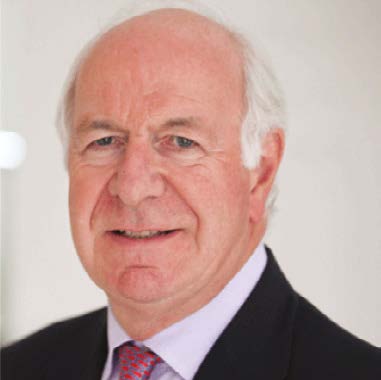
Emeritus Professor of Paediatric Endocrinology at William Harvey Research Institute, Barts and the London School of Medicine & Dentistry, London, UK
Martin Savage is Emeritus Professor of Paediatric Endocrinology at William Harvey Research Institute, Barts and The London School of Medicine and Dentistry, Queen Mary University of London. He was head of the Paediatric Endocrine Unit at Barts and the London School of Medicine from 1982 to 2007. He has interests in growth disorders, specifically those with abnormalities in the growth hormone (GH)-IGF-1 axis and in phenotype-genotype relationships of GH-IGF-1 axis defects, notably GH resistance. He published the first human case of an IGF-1 gene defect in The New England Journal of Medicine in 1996. His other interests are Cushing’s syndrome and growth in chronic inflammatory diseases. He was General Secretary of the European Society for Paediatric Endocrinology (ESPE) from 1997 to 2004. He has lectured in 61 countries and has published 472 original articles, reviews, textbook chapters and books. In 2007, he was awarded the ESPE Andrea Prader Prize for contributions to paediatric endocrinology and in 2018 he received a Visionary Award from the American Human Growth Foundation. In 2022, he received a Research Excellence Award from the Dr Sulaiman Al Habib Medical Journal in Riyadh, and the British Society of Paediatric Endocrinology & Diabetes James M. Tanner Lifetime Achievement Award. He continues to lecture nationally and internationally.
CAMILLA ERNSTSSON
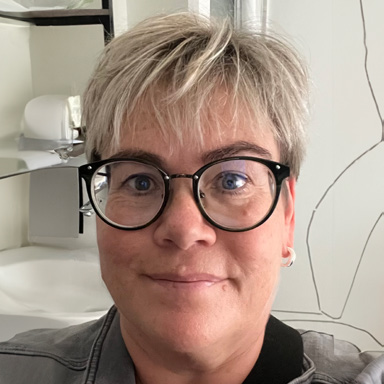
Paediatric endocrine nurse, University Hospital of Umeå, Sweden
Camilla Ernstsson is a paediatric endocrine nurse with 13 years’ experience. Before that over 15 years’ experience in paediatric oncology. She is Chair of the ESPE nurse working group and has a coordinating role in the Swedish paediatric nurse network.
CATHERINE PETERS
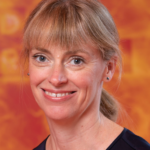
Consultant in Paediatric Endocrinology, Great Ormond Street Hospital, London, UK
Dr Peters is a Consultant in Paediatric Endocrinology and Diabetes at Great Ormond Street Hospital for Children and University College London Hospital. She has a clinical and research interest in thyroid disease and has established a large clinical cohort of children with congenital hypothyroidism. She collaborates with Prof Nadia Schoenmakers at University of Birmingham to study the genetics of congenital hypothyroidism. She is the chair of the UK Newborn Screening Advisory Committee for Congenital Hypothyroidism and BSPED Special Interest Group in thyroid disorders. She has supported the British Thyroid Foundation as a trustee for 6 years.
OCTAVIO RIVERA ROMERO
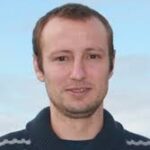
Associate Professor , Department of Electronic Technology, University of Seville, Seville, Spain
Octavio Rivera Romero is an Associate Professor at the University of Seville since 2012. Dr. Rivera is member of the Sociedad Española de Informática y Salud (SEIS) since 2018 and of the International Medical Informatics Association (IMIA) since 2016. Dr Rivera is member of the Ethical Committee of the Universidad de Sevilla. His research interests are Participatory Health Informatics and Personalization of Health solutions. His has experience in conducting research using participatory methods in the field of health. He has moderated participatory workshops in Europe, Africa and Asia.
LISA SHEPHERD

Clinical Service Lead, University Hospitals Birmingham, Birmingham, UK
Lisa has worked in Endocrinology for 25 years, creating the first Endocrinology Clinical Nurse Specialist role and leading the endocrine nursing service at Heartland of England Foundation Trust, (now part of University Hospitals Birmingham NHS Foundation Trust). A member of SfE Nurse Committee and previous Chair, she has been involved with a number of projects that has advanced and standardised the education, knowledge and skills required as an endocrine clinical nurse specialist. She also sits on several endocrine working groups/committees, is actively involved with patient support groups and a visiting specialist University lecturer.
She is undertaking a fellowship PhD looking at developing an intervention to prevent adrenal crisis in patients with Primary Adrenal Insufficiency
HELEN SPOUDEAS

Consultant Paediatric NeuroEndocrinologist and Founder Success Charity, Life After Cure, London, UK
A Clinical NHS Paediatrician & Tertiary Neuroendocrine Subspecialist for 45 years with academic & clinical research interests in acquired brain injury & endocrine toxicity from brain tumours & cancer. After a doctorate on the neuroendocrinology of brain irradiation, as the nominated paediatric endocrine / oncology cross-society lead, her career and research concentrated on pioneering holistic award-winning services, cross-discipline endocrine-oncology, neuroscientific quality of survival outcomes in international brain tumour treatment trials, characterising hypothalamic injury, and improving neuroendocrine support to decision-making MDT’s, including 3 world-first, RCPCH- endorsed children ‘s pituitary tumour guidelines. The need to ‘brighten the futures’ of children surviving brain tumours by ‘getting it right from the beginning’, is underpinned by the drive to determine remediable, tumour-induced brain injury from true treatment toxicity, and continues from the platform of a national charity. Success Life After Cure www.successcharity.org.uk, founded in 2020, specifically aims to address the unmet gap in recovery support for the secondary life-threatening health outcomes of this now high survival group, and improve health & functional independence of survivors through a near normal lifespan.
TANYA URQUHART-KELLY

Associate Head, School of Health & Social Care Professional Lead Children’s Nursing, Learning Disability & Social Work Nursing, Sheffield Hallam University, Sheffield, UK
Tanya Urquhart-Kelly is an Associate Head and Professional Lead for child, learning disability and specialist community public health nursing in the School of Health & Social Care at Sheffield Hallam University. She has over 24 years clinical experience predominantly in paediatric oncology/ haematology/ endocrine nursing specialising in survivorship care for children and young people (CYP). Tanya’s role involves guiding academic and administrative initiatives to enhance education, research, and clinical practice, fostering interdisciplinary collaboration, driving innovation in curriculum and teaching methods, and supporting staff and students in their professional development. Her research interests include transition in survivorship care, activity and sports participation in CYP following a cancer diagnosis and endocrinopathies associated with the treatment for childhood cancer. Tanya’s PhD is focusing on Exploring the Transition Experiences of Young Adult Survivors following treatment for a brain tumour in childhood – Interventions and Staff Views: MMSR.
JUDITH VAN ECK
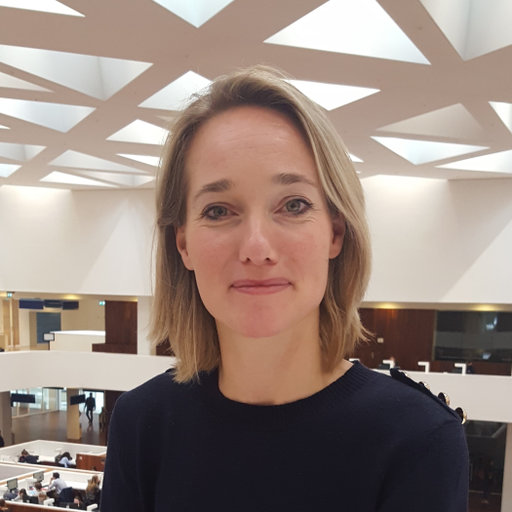
Clinical Nurse Specialist, Erasmus MC, Rotterdam, the Netherlands
Judith van Eck is works as a nurse practitioner at the department of Paediatric Endocrinology at Erasmus MC- Children’s Hospital in Rotterdam, The Netherlands. Her career in nursing started in 2004 when she received her bachelor’s degree in nursing science. From 2008 to 2010, she followed the master’s in advanced nursing Practice at Rotterdam University of Applied Sciences.Her focus area are pituitary and adrenal disorders, obesity, Turner Syndrome and transition care. She has been a member of the ESE nurses working group (2013-2017) and chair of the of the Dutch Endocrine Nurses Group (2019-2022). Currently, she is member of educational committee and adrenal network of the Dutch Endocrine Society.
AIMS AND LEARNING OBJECTIVES
Learning objectives
After participating in the programme, learners will be able to:
- Understand the integration of AI with clinical skills in paediatric endocrinology
- Explore the role of digital monitoring in adrenal disorders
- Identify the current limitations and future potential of AI in clinical practice
- Review the diagnosis and management of congenital hypothyroidism
- Discuss acquired thyroid dysfunction in childhood
- Identify key factors and best practices in managing paediatric endocrine emergencies
- Understand the late effects of cancer therapy on endocrine function
- Discuss thyroid abnormalities and the impact on the paediatric endocrine system after cancer treatment

